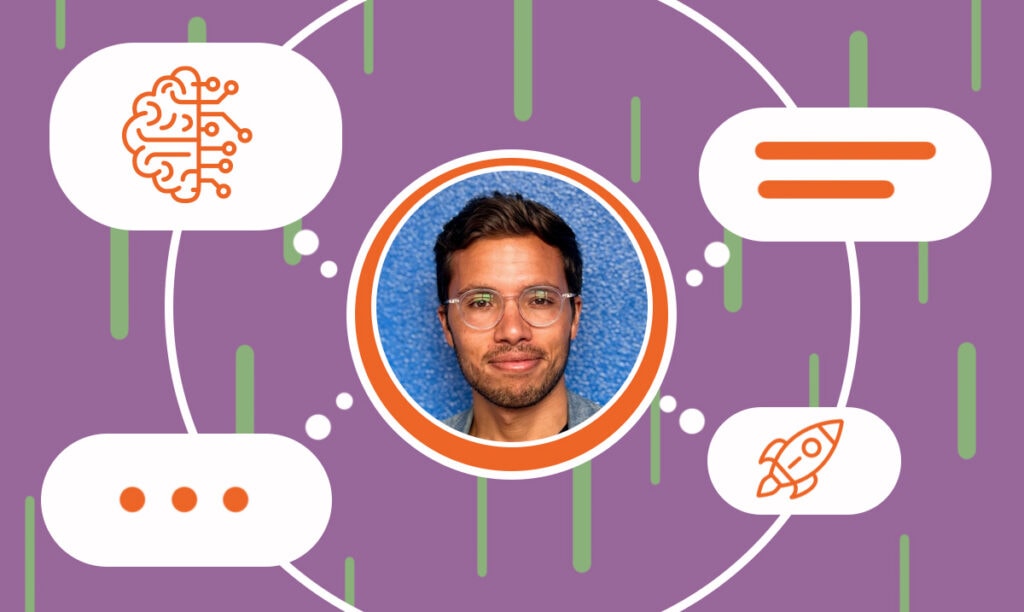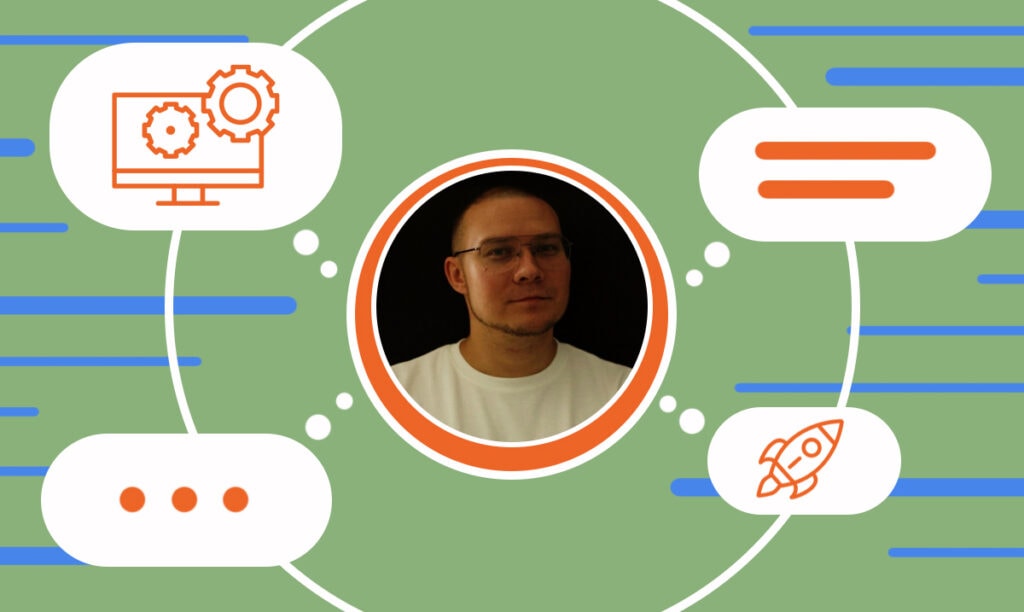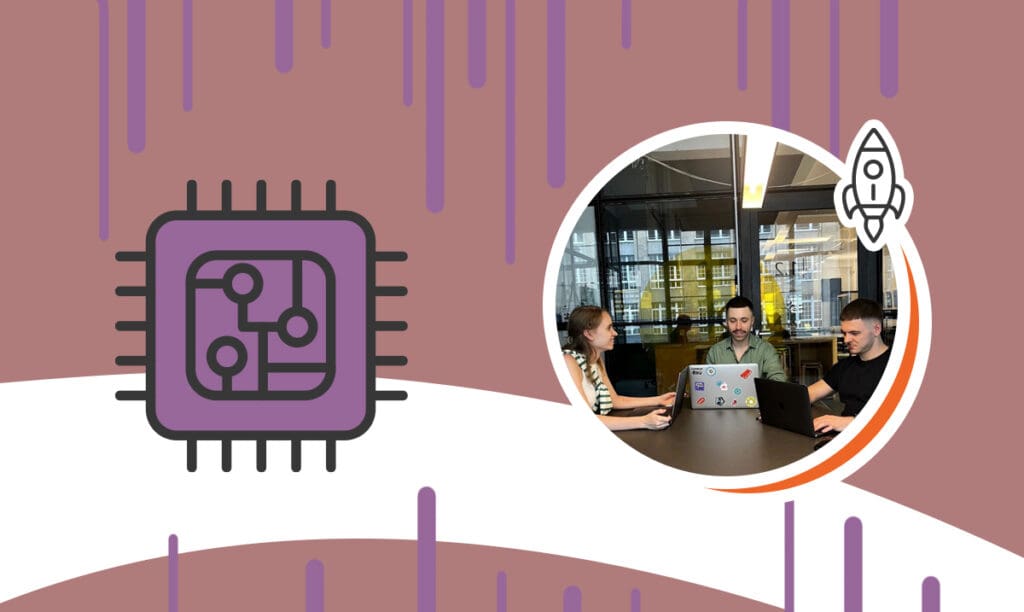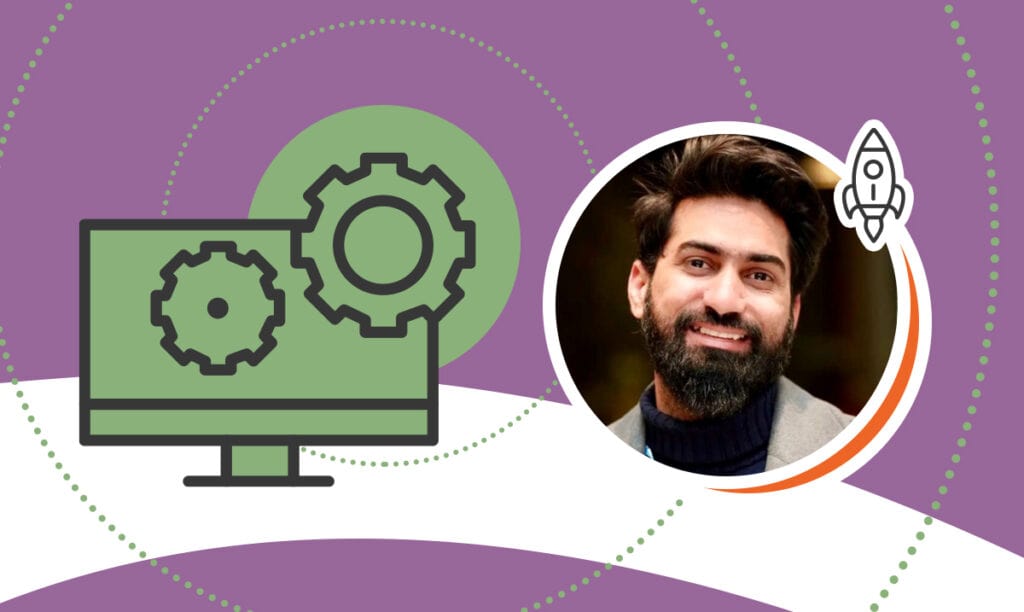Moai Team, under the guidance of CEO Aleksandr Duchenchuk, has emerged as a big player in the software development industry, particularly in thereal ...
Jonathan Harel on Transforming Software Development with AI
Written by: Esther Strauss
Esther is a business strategist with over 20 years of experience as an entrepreneur, executive, educator, and management advisor.
Published on April 3, 2024

In an industry where innovation is key, Jonathan Harel, VP of R&D and co-founder of Fine.dev stands out as a visionary. In this interview, we delve into the mind behind one of the most intriguing AI-driven platforms in software development.
Discover how Fine is reshaping the way developers work, and learn the insights and experiences that drive Harel’s success. A must-read for anyone intrigued by the intersection of AI and software development, this interview offers a rare glimpse into the future of tech.
The Inspiration Behind Fine
SBS – What inspired the creation of Fine, and what gap did you see in the market?
Jonathan – Fine was created after a long process of ideation that we conducted through producing a web series on Developer Experience. We interviewed people from all “ranks” of R&D, from the devs in the trenches to the VPs and CTOs. We told the participants in advance that the conversations were going to deal with everything that didn’t work — “Don’t tell us the good stories.” During the interviews, we got to hear about all the problems that affect the developer experience.
The talks uncovered 81 “blockers” that hinder progress in the tech world. Those range from the fields of PRs and design to communication and teamwork. This was around the time ChatGPT was released, and we immediately realized that AI is going to change our field completely. We knew that there was an opportunity there, so we went for it.
By the way, these interviews turned into the biggest tech web series in Israel. 🙂
The Role of AI in Software Development
SBS – How do the AI agents in Fine specifically enhance a software development team’s productivity?
Jonathan – Fine provides dev teams with AI agents to which they can delegate complete software tasks. The agents are experts in software tasks, are familiar with your codebase, and know what tools you use and how you write code in your company.
We are integrated into your task management, GitHub, and even error handling systems, so whenever you meet a new technical task, you can immediately delegate it to an agent.
Merging AI with Existing Development Workflows
SBS – Can you describe the process of integrating Fine’s AI agents into existing development workflows?
Jonathan – It’s super simple, actually! To get started, all you need to do is sign up for Fine and authorize our integration with GitHub. This integration connects your GitHub repositories with Fine, allowing our AI agents to analyze your codebase, resolve tickets, and generate new pull requests. Once this process is complete (it can take a few minutes), you can start asking questions about the codebase, delegate tasks, review PRs, and more.
Adapting to Coding Standards and Project Requirements
SBS – How does Fine ensure that the automated tasks align with a team’s specific coding standards and project requirements?
Jonathan – Ah! That’s where our agents really shine. We built Fine’s agents to be sensitive to existing standards and requirements. We knew from day one that when our agents meet real-world repositories, they must be “model citizens” and behave like all the other contributors.
At the end of the day, software is a team sport, so it’s critical that all players are aligned. Behind the scenes, this is definitely something we look at before providing our users with code/guidance.
Identifying Ideal Tasks for AI Automation in Software Development
SBS – What types of tasks are best suited for automation by Fine’s AI agents?
Jonathan – We are still exploring the best use cases for our agents. As of today, our clients and community have identified a few that work really well. Those are mundane or repetitive tasks that are a bit too complex for simple automation, development of web applications, backend apps in Python, and more.
That being said, we have users exploring other areas in tech (for example, migrating from legacy systems or working with low-level code).
Balancing AI and Human Talent
SBS – How do you address concerns about AI potentially replacing human developers?
Jonathan – We don’t think that developers are going anywhere anytime soon. However, it’s important to understand that our job will definitely change. With AI becoming better and better at coding, software engineering will become much more about solving problems and guiding AI on how to code the solution. As we move forward, humans will spend less and less time actually coding.
We see it as a blessing — it liberates us from the hassle of code and frees us to deal with the core of our job: thinking and solving technical problems.
Feedback and Its Impact on Fine.dev’s Evolution
SBS – What kind of feedback have you received from teams using Fine, and how has it influenced your product development?
Jonathan – We’ve received diverse feedback, but the underlying theme is the appreciation for the time and effort our AI agents save. It’s truly awesome to experience a task being handled fully and correctly by AI. It feels like magic, and personally, it reminded me why I love this field so much.
Of course, our users also provide negative feedback and report bugs (oh so many bugs) to us. It really helps us understand what people focus on, what features are more in demand, etc. We’re always tweaking and improving based on our users’ feedback.
Securing the Code
SBS – How do you ensure the security and privacy of the codebases that Fine’s AI agents work with?
Jonathan – This is a critical question in our field. A company’s codebase is probably one of the most sensitive things it owns. That’s why security and privacy are our top priorities. We employ state-of-the-art encryption methods to protect users’ data. Additionally, Fine’s agents operate under strict data access and usage policies, ensuring that your codebase remains secure and private.
We also work in a BYOM (bring your own model) way, which allows organizations to work with us using OpenAI on Azure, for example.
Overcoming Challenges in AI Development
SBS – What challenges did you face in developing AI agents that can understand and contribute to complex software projects?
Jonathan – Teaching LLMs to understand and contribute to complex software projects was (and still is!) a significant challenge. There were hurdles in ensuring the AI could understand different coding styles, implement coding standards, and adapt to various project scopes. But, our dedicated team overcame these through iterative testing and continuous learning.
Since we are developers ourselves, it’s really easy for us to see if the results are good or not. We keep striving to improve and we hope that in the near future, developers who use Fine will be blown away by the quality of our agents.
Maximizing AI Efficiency
SBS – How does Fine support teams in managing and optimizing their use of AI agents?
Jonathan – We offer comprehensive resources and dedicated support to help teams leverage our AI agents effectively. This includes tutorials, best practice guides, and responsive customer support. We believe that in the future, R&D teams will need a platform in which they could manage all their AI workers. That’s what we’re building today as well.
Future Plans and Innovations
SBS – What future developments or features are you planning to introduce to Fine?
Jonathan – The most important thing for us is to introduce integrations into the whole SDLC. We want our users to be able to work with our agents from the planning stage all the way to deployment. We already integrate with task management software and GitHub (code management). In the future, we will also cover other areas like monitoring (Sentry, for example), CI/CD responsiveness, and much more.
Entrepreneurial Wisdom
SBS – Lastly, what advice would you give to other entrepreneurs looking to innovate in the tech industry, particularly in AI and software development?
Jonathan – Work with your own solutions. Try the latest models. Be “hands-on” with this world because things change so quickly, and it’s really important to understand what’s available out there.
Subscribe to Our Newsletter
and gain insider access to cutting-edge business insights and trends.
Featured Resources

Alex Duchenchuk on Building a Software Powerhouse at Moai Team
Published on January 8, 2024
Read Now

Building Success in Software Development: An Interview with Nikita Sviridenko
Published on December 19, 2023
Voypost, with the founder and CEO Nikita Sviridenko, is a trailblazing company at the forefront of crafting tailored solutions to propel businessgro ...
Read Now

Decoding InvoZone’s Rise in Software Development
Published on November 10, 2023
In the dynamic world of software development, where innovation and agility are key, InvoZone has emerged as a trailblazer under the astuteleadership ...
Read Now
Comments